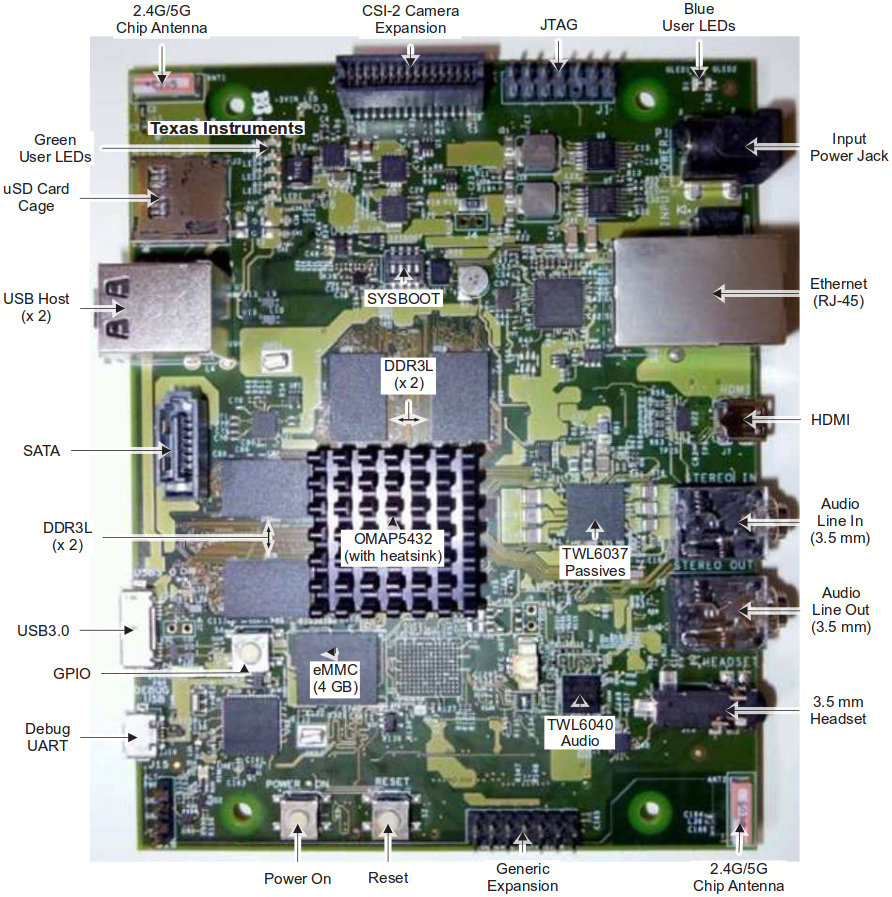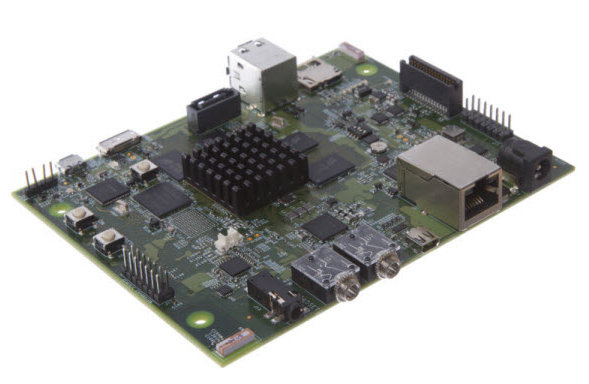Earlier this month, Texas Instruments has apparently discreetly, not to say surreptitiously, launched their OMAP5432 evaluation module. Beside the dual Cortex A15, dual Cortex M4 OMAP5 SoC, the board comes with 2GB RAM, a 4GB eMMC module, USB 3.0, SATA and more.
- SoC – Texas Instruments OMAP5432 Multicore ARM Cortex A15/M4 processor with PowerVR SGX544MP2 GPU
- System Memory – 2GB DDR3L (implemented using 4x Micron 4Gb DDR3L devices (MT41K256M16HA-125:E)
- Storage – 4GB EMMC/iNAND Ultra device + SD/MMC 4-bit Micro-SD card cage
- Display / Video:
- HDMI via native OMAP HDMI interface
- DSI Display Expansion (DSIPORTA and DSIPORTC) via 100-pin expansion connector
- Parallel Display Expansion (DPI) via 100-pin expansion connector
- Audio – Audio Jack 3.5mm, Stereo out & in, Headset Jack (earphone/microphone)
- USB – 3x USB HS 2.0 (2 via USB connector, one via 0.1″ header), 1x USB 3.0, and 1x USB OTG 2.0/3.0
- Connectivity – 10/100 802.3u Ethernet. No Wi-Fi, but for some reasons there are not one, but two 2.4G/5G chip antennas on the board…
- Camera – MIPI CSI-2 camera and/or parallel camera/dual MIPI CSI-2 sensors supported via camera expansion connectors
- Debug Interfaces – UART via micro-USB connector, JTAG, Debug LEDs, GPIOs
- Misc – 1x user defined button, 1x reset button
- Power – 12V input
- PCB info – 127.00mm x 100.84 mm, 10 layers (8 Routing)

The board supports Linux, Android, QNX, and Green Hills Inetgrity, and evaluation software or BSP for the 4 operating systems are available in TI website. Documentation appears to be lacking at this stage, as I could only find a Quick Start Guide on the site. They’ve also posted some videos, including the getting started video below, but they also have 2 others videos showing how to run Android and Linux running on the platform.
The board is said to have been available since the 1st of May, and it can be purchase for $329 from SVTronics. You may find further information on TI’s OMAP5432-EVM page, and TI E2E forums.
Thanks to Max for the tip!

Jean-Luc started CNX Software in 2010 as a part-time endeavor, before quitting his job as a software engineering manager, and starting to write daily news, and reviews full time later in 2011.
Support CNX Software! Donate via cryptocurrencies, become a Patron on Patreon, or purchase goods on Amazon or Aliexpress





